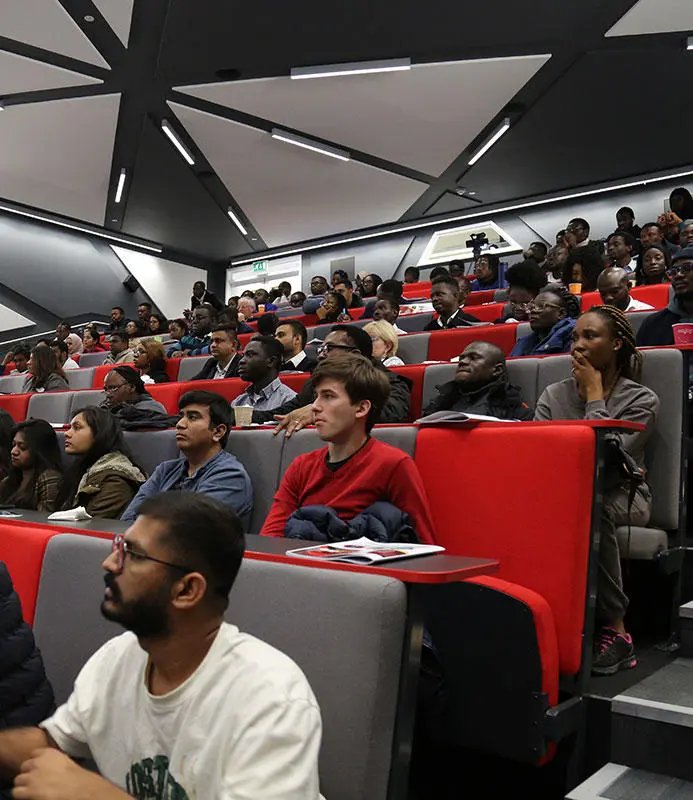Welcome
At Solent, our aim is to undertake innovative research that has a wide-ranging and significant impact on the experiences and learning of our students and on the lives of those in our local, national, and international communities.
Our Research and Knowledge Exchange Enabling Strategy is designed to support our delivery of research that will make a positive difference and create social value.

Welcome
At Solent, our aim is to undertake innovative research that has a wide-ranging and significant impact on the experiences and learning of our students and on the lives of those in our local, national, and international communities.
Our Research and Knowledge Exchange Enabling Strategy is designed to support our delivery of research that will make a positive difference and create social value.

Research areas
Aligning closely to the United Nations Sustainable Development Goals, our research priorities fall under four broad areas:

Graduate School
The hub for our vibrant and interdisciplinary postgraduate research community.
Find out moreREF 2021 results
The Research Excellence Framework (REF) 2021 results have established Solent as a university with research at its core.
Overall, in REF 2021, 34% of Solent’s research was assessed as world-leading and internationally excellent – up from 19% in 2014; and 50% of our research outputs were rated as world-leading and internationally excellent – up from 28% in 2014.
The University’s submission included research from 59 researchers – up from 43 researchers in 2014.
This improvement in the REF 2021 results has been recognised by a 50% increase in our quality-related (QR) research funding allocation from ~£172k in 2021-22 to ~£255k in 2022-23.





